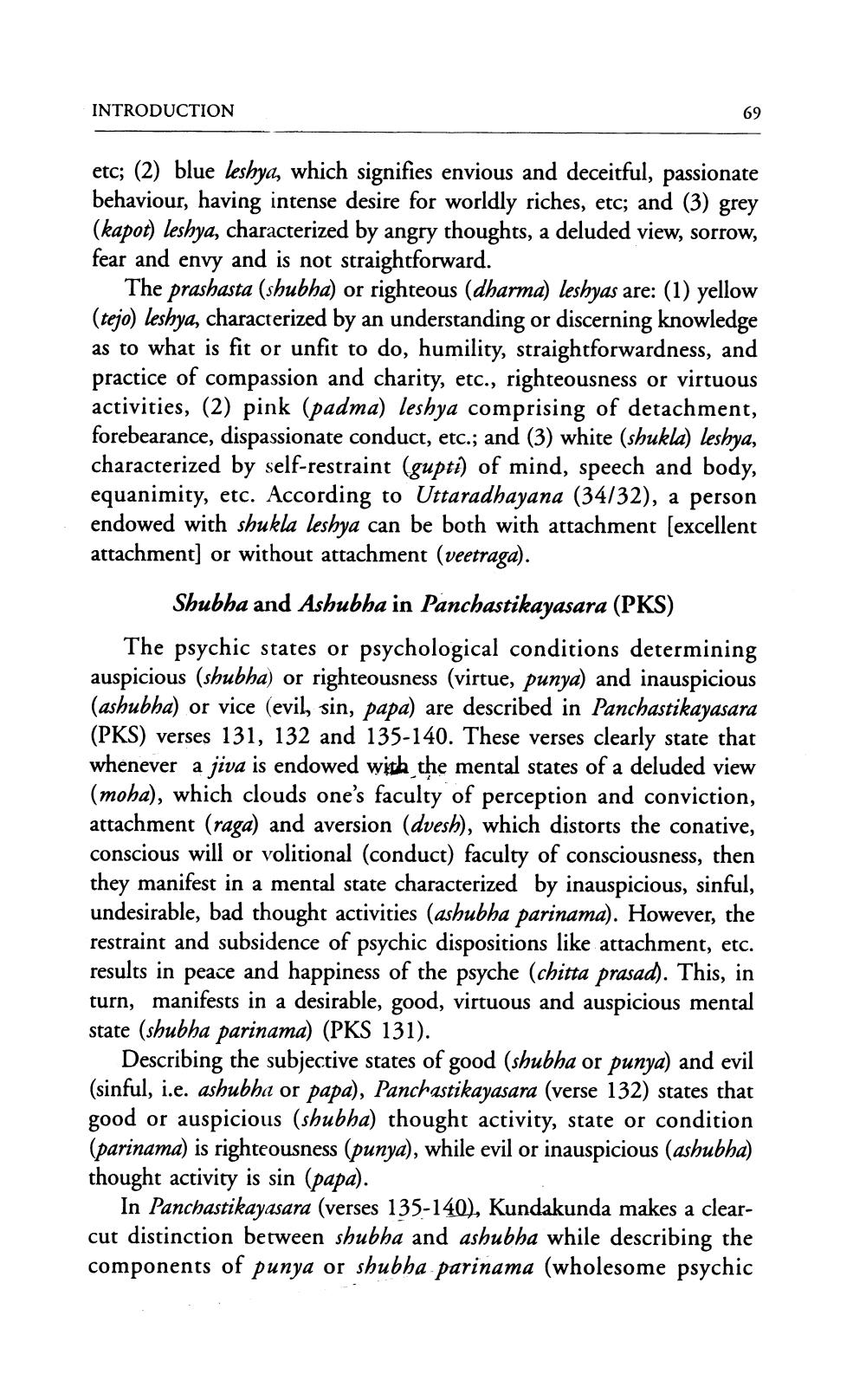________________
INTRODUCTION
69
etc; (2) blue leshya, which signifies envious and deceitful, passionate behaviour, having intense desire for worldly riches, etc; and (3) grey (kapot) leshya, characterized by angry thoughts, a deluded view, sorrow, fear and envy and is not straightforward.
The prashasta (shubha) or righteous (dharma) leshyas are: (1) yellow (tejo) leshya, characterized by an understanding or discerning knowledge as to what is fit or unfit to do, humility, straightforwardness, and practice of compassion and charity, etc., righteousness or virtuous activities, (2) pink (padma) leshya comprising of detachment, forebearance, dispassionate conduct, etc.; and (3) white (shukla) leshya, characterized by self-restraint (gupti) of mind, speech and body, equanimity, etc. According to Uttaradhayana (34/32), a person endowed with shukla leshya can be both with attachment [excellent attachment] or without attachment (veetraga).
Shubha and Ashubha in Panchastikayasara (PKS)
The psychic states or psychological conditions determining auspicious (shubha) or righteousness (virtue, punya) and inauspicious (ashubha) or vice (evil, sin, papa) are described in Panchastikayasara (PKS) verses 131, 132 and 135-140. These verses clearly state that whenever a jiva is endowed with the mental states of a deluded view (moha), which clouds one's faculty of perception and conviction, attachment (raga) and aversion (dvesh), which distorts the conative, conscious will or volitional (conduct) faculty of consciousness, then they manifest in a mental state characterized by inauspicious, sinful, undesirable, bad thought activities (ashubha parinama). However, the restraint and subsidence of psychic dispositions like attachment, etc. results in peace and happiness of the psyche (chitta prasad). This, in turn, manifests in a desirable, good, virtuous and auspicious mental state (shubha parinama) (PKS 131).
Describing the subjective states of good (shubha or punya) and evil (sinful, i.e. ashubha or papa), Panchastikayasara (verse 132) states that good or auspicious (shubha) thought activity, state or condition (parinama) is righteousness (punya), while evil or inauspicious (ashubha) thought activity is sin (papa).
In Panchastikayasara (verses 135-140), Kundakunda makes a clearcut distinction between shubha and ashubha while describing the components of punya or shubha parinama (wholesome psychic




